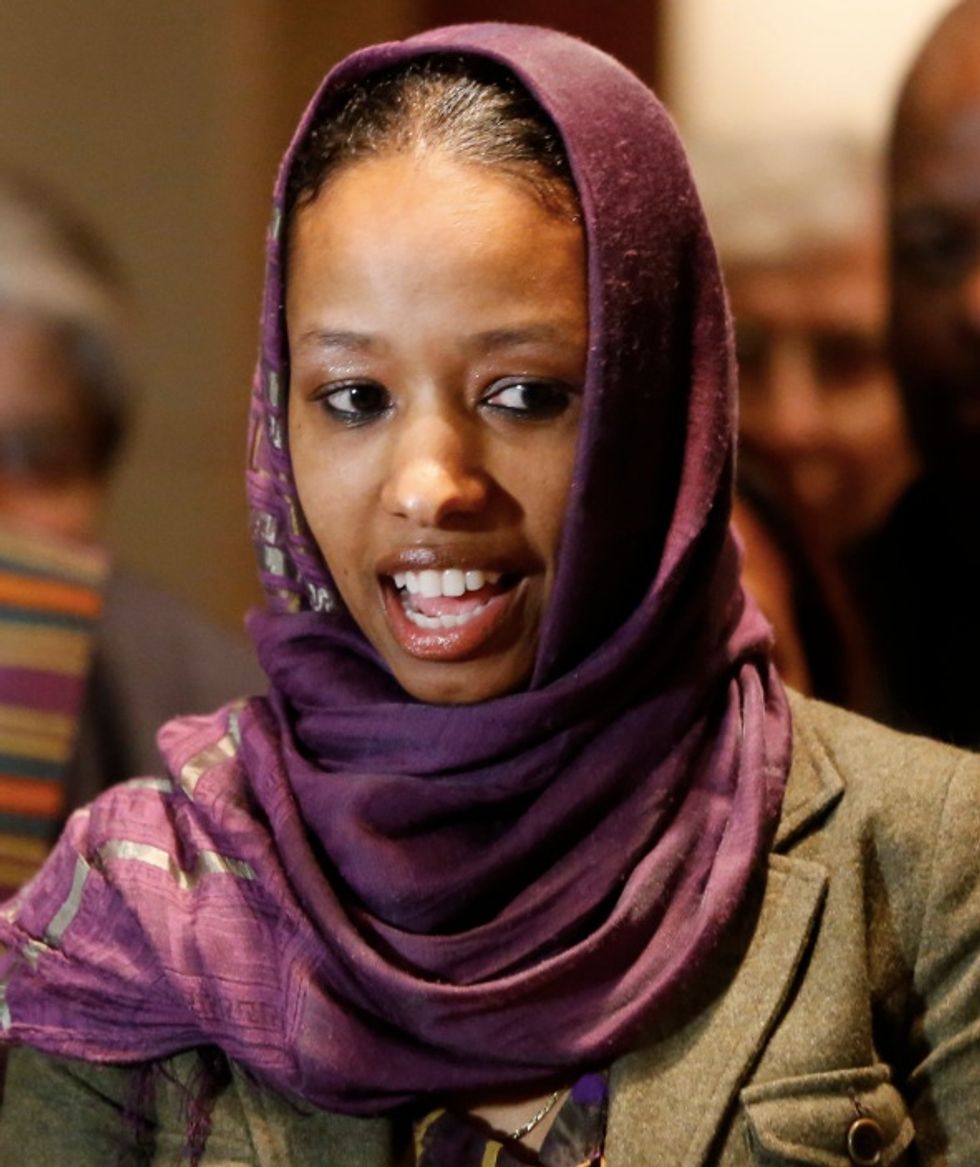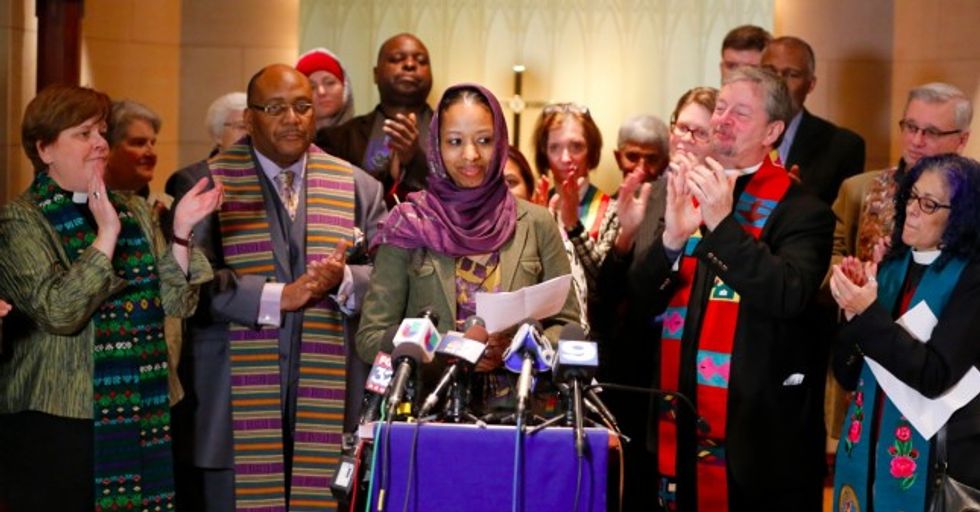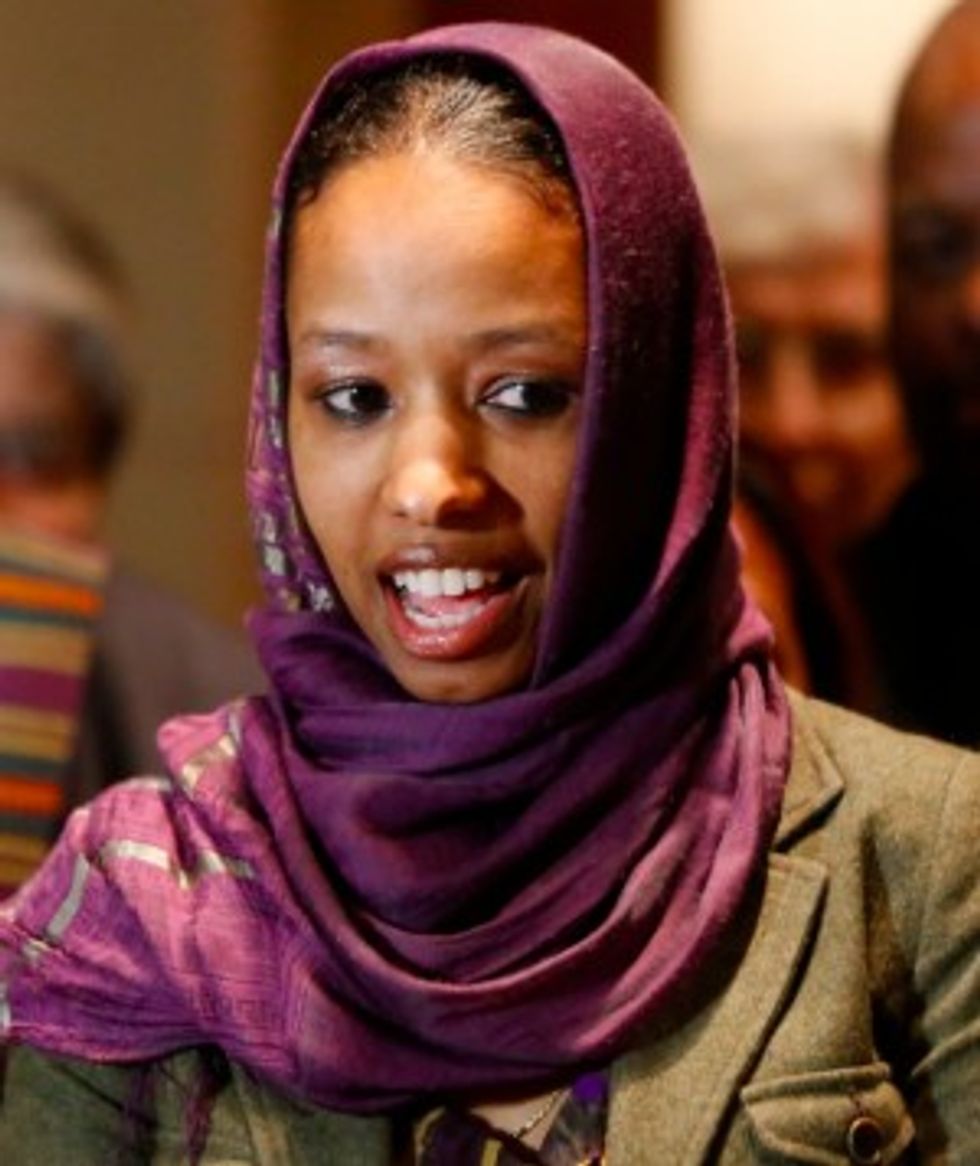
Wheaton College associate professor Larycia Hawkins responds to a question during a news conference Wednesday, Dec. 16, 2015, in Chicago. (AP Photo/Charles Rex Arbogast)

In the wake of news that a professor was suspended from her Christian college after her Facebook post on why she's wearing a Muslim headscarf for Advent, it's fitting that the Chicago Tribune should weigh in on the drama at Wheaton, a suburb just an hour west of the Windy City.
The backstory appears to possess all the elements needed for a shocking tale of oppression: racial, religious, gender, speech, association — you name it. And when a big-city newspaper has something to say about an issue like this, you very well might imagine its editorial coming down hard on Wheaton College as "haters" and backing up suspended professor Larycia Hawkins.

But the Tribune's is not that kind of editorial.
Among its first observations? After taking a closer look at the situation, "you find more expressions of tolerance than most disputes rooted in religious pluralism include." More from the Tribune:
All of us are talking about Hawkins because she declared on social media that Christians and Muslims share the same God. "I stand in religious solidarity with Muslims because they, like me, a Christian, are people of the book," she posted Dec. 10 on Facebook. "And as Pope Francis stated last week, we worship the same God." She also is wearing a traditional headscarf, or hijab, in support of Muslims who feel harshly scrutinized, particularly since the terror attacks in Paris and San Bernardino.Wheaton, an evangelical Christian school, responded that while Islam and Christianity are both monotheistic, the two faiths shouldn't be conflated. "Wheaton College faculty and staff make a commitment to accept and model our institution's faith foundations with integrity, compassion and theological clarity," the college said. "As they participate in various causes, it is essential that faculty and staff engage in and speak about public issues in ways that faithfully represent the college's evangelical Statement of Faith."
Hawkins says she hasn't violated that statement, which she and all instructors sign. Wheaton sees it differently. And you can set aside any gut reaction that includes the First Amendment; that crucial protection restricts what governments and their institutions can do, not what a private college can require of its teachers.
With the issue of free speech set aside, the editorial brings in religious beliefs. "This is where it's tempting for each of us to peer at this case through our personal prisms and declare who's right and wrong," the paper states. "Tempting, but not as useful as exploring how much Wheaton and Hawkins share:"
More from the Tribune:
The college wants to protect its expression of its beliefs — how it carries itself in the world. Wheaton's desire to consistently project its Christian message isn't therefore contemptuous of Islam. Unlike those who merely espouse a faith, Wheaton wants to live it.And Hawkins? She seems to understand this, hence her statement of support: "I think Wheaton takes very seriously its role as a Christian liberal arts institution. And I respect the institution."

And here's the kicker, with the piece first noting Americans' freedom to agree or disagree: "... but we uniformly tolerate Hawkins' theological beliefs — just as we tolerate Wheaton's desire to live by its beliefs. Those among us who dislike Wheaton's culture — we don't suggest Hawkins is in that group — probably should enroll or teach elsewhere. (Unless we're heading there to try to change the school, a different discussion.)"
More from the editorial:
But we ought to focus now on how that principle of religious tolerance extends liberties to the professor and to the school. Remember that this tolerance protects a fragile freedom. It is rooted less in fear of institutions imposing their beliefs on individuals than on bloody histories of governments dictating which institutions can even exist. Here, we give the individual and the institution wide latitude in the religious realm. Even when it's infuriating or frustrating or just goes against our grain, at our best we're consistently ... tolerant.
And as for students who've gone to bat for Hawkins or for Wheaton, the Tribune piece offers an instructive illustration that will exist beyond this particular episode.
"They are living out a life lesson in the frictions and redemptions of the jostling pluralism that is America," the editorial states. "If every disagreement in higher education had stakes this important and voices this thoughtful, then every college diploma would be worth even more than it is."